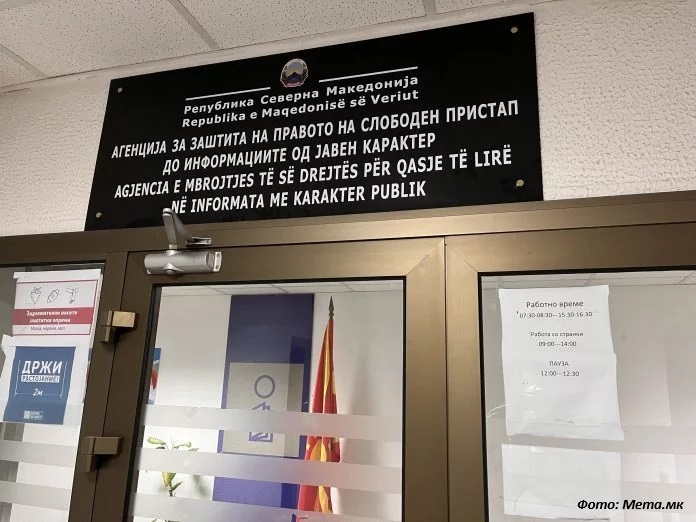THE ROAD TO FREE ACCESS TO INFORMATION IS PAVED WITH LAWSUITS, NON-TRANSPARENCY AND SILENCE FROM THE ADMINISTRATION

The investigative article of the META News Agency sheds light on the challenges faced by the Agency for the Protection of the Right to Free Access to Public Information, highlighting the Agency’s efforts in handling complaints, dealing with the administration’s silence, and fighting against the lack of transparency among the holders of public information.
„The archive is full of objects, and the renovated rooms view the whole of Skopje as if to symbolically show that this Agency for Free Access is vigilantly monitoring the accountability of all those financed by public money. But, of course, the road is not easy—the silence of the institutions remains a problem, despite all efforts to eradicate this phenomenon—60 percent of the complaints are due to the administration’s silence,” says journalist Meri Jordanovska.
„How much salary does a certain minister, director, or official receive? How much money did the MPs spend on travel expenses? How many court verdicts have been passed for domestic violence? How much did New Year’s decorations cost for each city in the country? These are just some of the questions that citizens can use and get answers to using the Law on Free Access to Public Information. According to the law, every institution that disposes of public money must respond to the requests submitted by citizens, non-governmental organisations, journalists and all natural and legal persons within 20 days. The goal is simple – for the institutions to be transparent and accountable to the public.”
“Access to information is a key component of transparent and accountable government. The purpose of access to information is to allow citizens to see how the government works, that is, to discover corruption or flaws in the creation of policies. In that sense, the information created and held by public authorities belongs to the public.”
Despite efforts to promote and facilitate access to information rights, bureaucratic procedures and non-transparency of some public institutions as holders of public information still represent significant obstacles. Furthermore, the article emphasises the need for greater accountability and transparency measures to ensure the effective functioning of the Agency and support the right of citizens to access information of a public nature.
To read the entire article, please follow the link:

